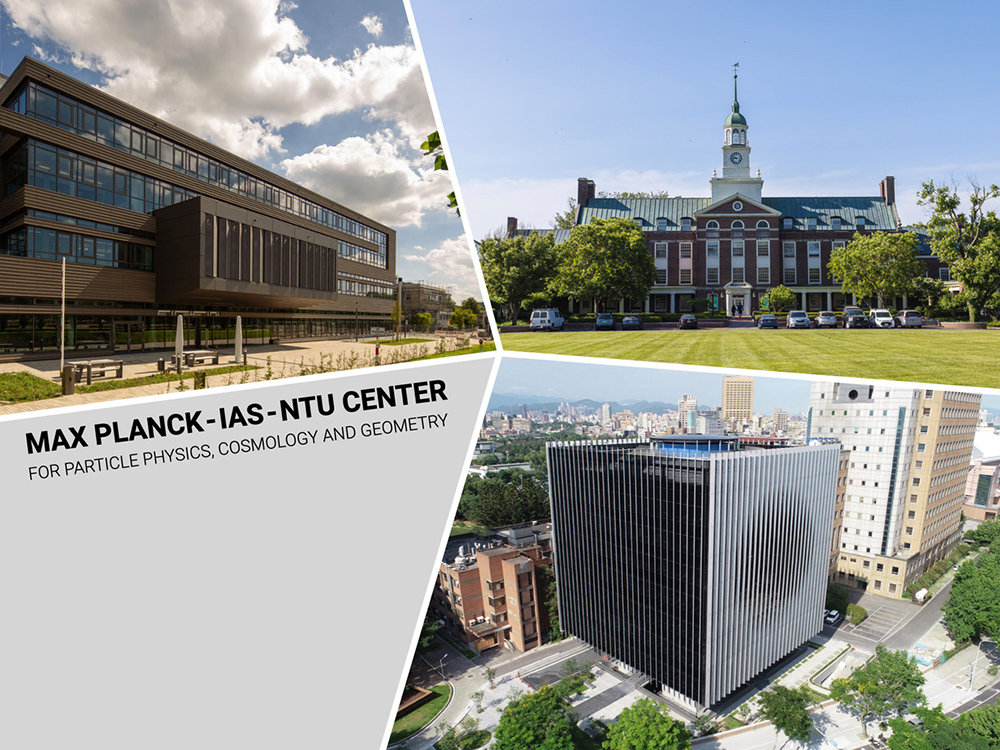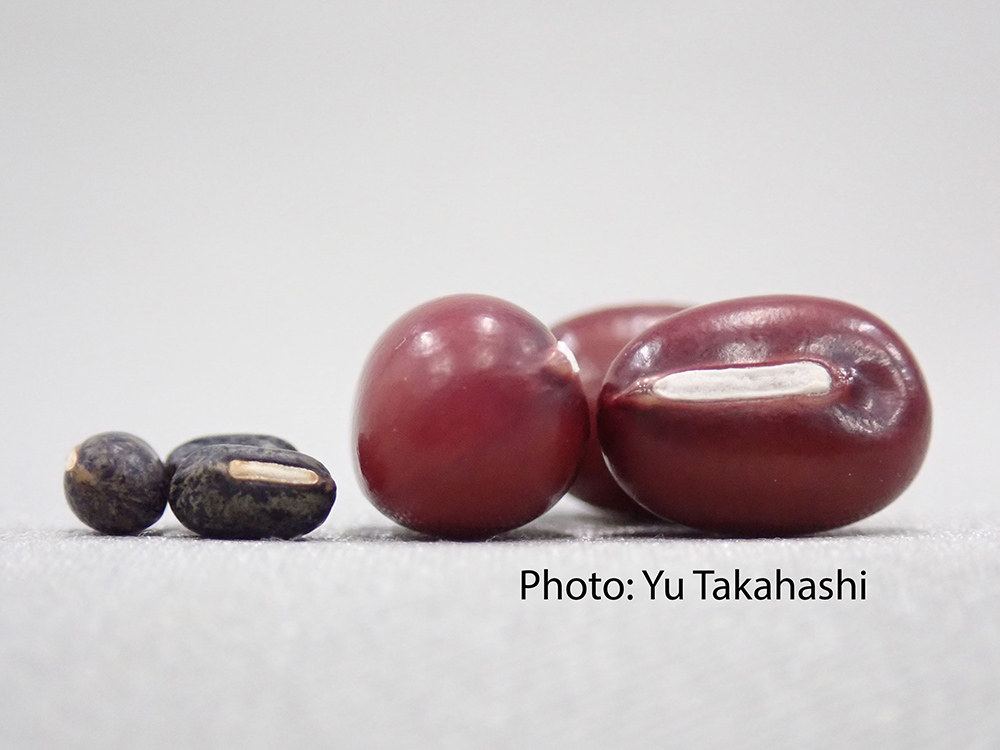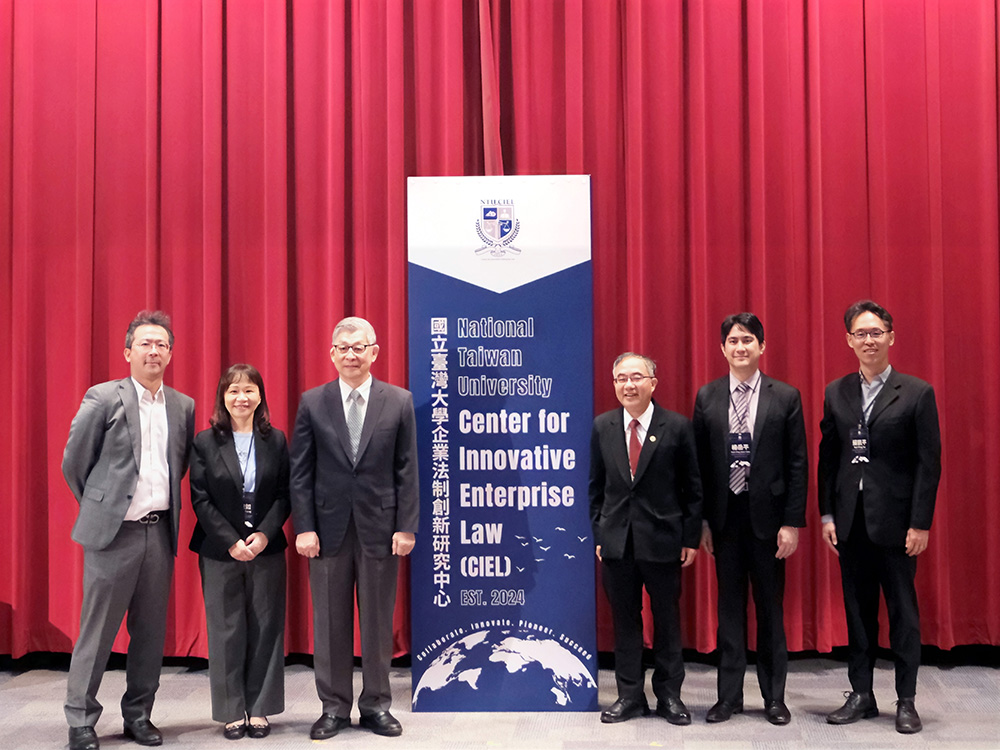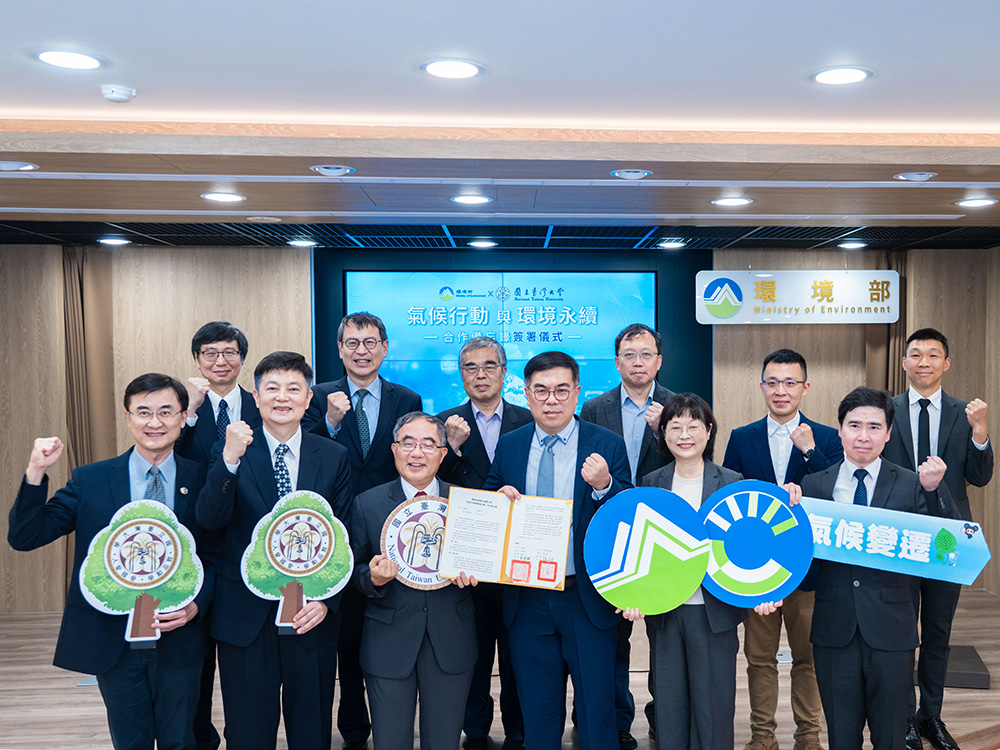
A new milestone for science at NTU: The inauguration of the Max Planck-IAS-NTU Center
瀏覽器版本過舊,或未開啟 javascript
請更新瀏覽器或啟用 javascript
Spotlights
An NTU chemical engineering team pioneers a technology for carbon adsorption and conversion. From left are Deputy Director General Yu-Ting Lai (賴宇亭) of the MOST Department of Engineering and Technology, NTU Prof. of Chemical Engineering Cheng-Liang Chen (陳誠亮), NTU Prof. of Chemical Engineering Kuo-Lun Tung, MOST Deputy Minister Yu-Chin Hsu (許有進), and NTU Prof. of Chemical Engineering Chia-Wen Wu (吳嘉文).
The NTU team led by Prof. Tung has successfully developed a world-leading innovative technology for carbon adsorption and conversion.
NTU Profs. Wu, Chen, and Tung (second to fourth from left) and the team members pose for a group photo.
The Ministry of Science and Technology (MOST) has recently carried out several strategic projects, including the National Energy Program and the Circular Materials Program, to achieve energy conservation and carbon mitigation. A research team from the NTU Department of Chemical Engineering has collaborated on these two projects and successfully developed the world-leading innovation: "Hollow Metal Fiber Supported Sorbents for Carbon Dioxide Adsorption/Catalytic Conversion System." The technologies have received several global recognitions. The patented technology of carbon dioxide adsorbents secured the gold medal in the 2016 Invention and New Product Exposition (INPEX), Pittsburgh, the United States. The key technologies of the carbon separation and conversion process were also granted the 14th National Innovation Award in 2017.
Furthermore, the research team headed by Prof. Kuo-Lun (Allan) Tung (童國倫) has established a startup company, ExtreMem Ind. Co., operating it under circular economy principles. The ExtreMem Co. mainly focuses on the manufacturing of membranes and other related products as well as the development of technologies for liquid treatments. In the future, the second startup company, BrightMem Co., will adopt new technologies from academia to accelerate the commercialization of carbon capture modules and catalyst conversion technologies.
The massive production of carbon dioxide cannot be avoided due to the extensive use of coal power plants and the rapid growth of industries. Nowadays, as circular economy concepts become widespread, the carbon capture and utilization (CCU) technologies have been increasingly regarded as the best strategy to address carbon pollution. In light of this, the NTU research team pioneered the development of the Hollow Metal Fiber Supported Sorbents, which will be further applied in the CCU process. The spun fibers contain a high content of uniformly dispersed porous silica adsorbents with enormous specific surface areas (>500 m2/m3 ). With this feature, the sorbents can rapidly adsorb a large amount of carbon dioxide, producing high-concentration carbon dioxide and then allowing further utilization of this greenhouse gas. This innovative design has successfully overcome the shortcomings of conventional adsorption devices, including poor thermal efficiency and short lifespan. Moreover, the design is flexible and scalable. With this design, system throughput can be enhanced simply by connecting the devices in series/parallel arrangements, making this technology readily feasible for industrial applications.
For various CCU technologies, the desorption stage often takes up more than 70% of the operating costs. However, through system optimization, we can integrate and reuse waste heat produced from industrial plants, and thus significantly reduce the cost of carbon capture, making the whole process more economical and cost-effective.
Regarding carbon dioxide utilization, the NTU team has been developing novel nanoporous metal-organic framework materials that have both high catalytic power and high surface area, and can thus significantly speed up the reaction rate. This catalyst is used to start the reaction of propylene oxide and high-purity carbon dioxide captured in the previous stage to produce propylene carbonate (PC). The conversion rate can reach up to 75% within 24 hours. PC is one of the raw materials for producing high-value chemicals such as polypropylene carbonate (PPC), which is extensively used to manufacture bio-degradable foams, plates, disposable medical/food packaging materials and so forth. Hence, overall, this newly-developed integrated system can dramatically reduce carbon mitigation costs and facilitate the development of circular economy and circular materials.

A new milestone for science at NTU: The inauguration of the Max Planck-IAS-NTU Center

A Distinguished Global Research Center Established at NTU under Trilateral Cooperation

Collaborative study between NTU and Japan uncovers the origin of Adzuki Beans and agriculture in Japan

NTU Launches Center for Innovation in Enterprise Law—with Forum Highlighting Trump’s Policy and Legal Shifts Amid Geopolitical Tensions

NTU and Ministry of Environment Sign MOU to Advance Net-Zero Transition and Environmental Resilience
Current Spotlights